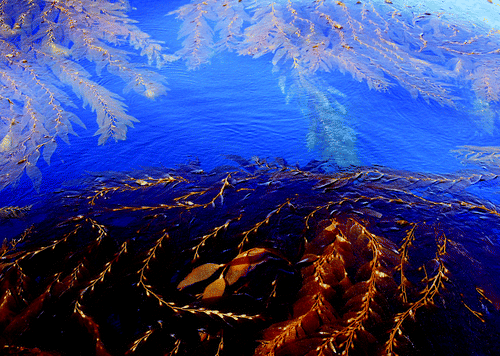You are here
Canopy-Forming Kelps as California’s Coastal Dosimeter: 131I from Damaged Japanese Reactor Measured in Macrocystis Pyrifera
Primary tabs
Canopy-Forming Kelps as California’s Coastal Dosimeter: 131I from Damaged Japanese Reactor Measured in Macrocystis Pyrifera
Sun, 2012-04-01 01:33 — Kathy GilbeauxThis study indicates Kelp could act as a coastal dosimeter for California.

The Fukushima Daiichi Nuclear Plant, damaged by an earthquake and tsunami on March 11, 2011 released large amounts of 131I into the atmosphere, which was assimilated into canopy blades of Macrocystis pyrifera sampled from coastal California. The specific activity calculated to the estimated date of deposition/assimilation ranged from 0.6 to 2.5 Bq gdwt–1, levels greater than those measured from kelps from Japan and Canada prior to the release. These 131I levels represent a significant input into the kelp forest ecosystem. Canopy-forming kelps are a natural coastal dosimeter that can measure the exposure of the coastal environment to 131I and perhaps other radioisotopes released from nuclear accidents. An organizational mechanism should be in place to ensure that they are sampled immediately and continuously after such releases.

Recent Comments